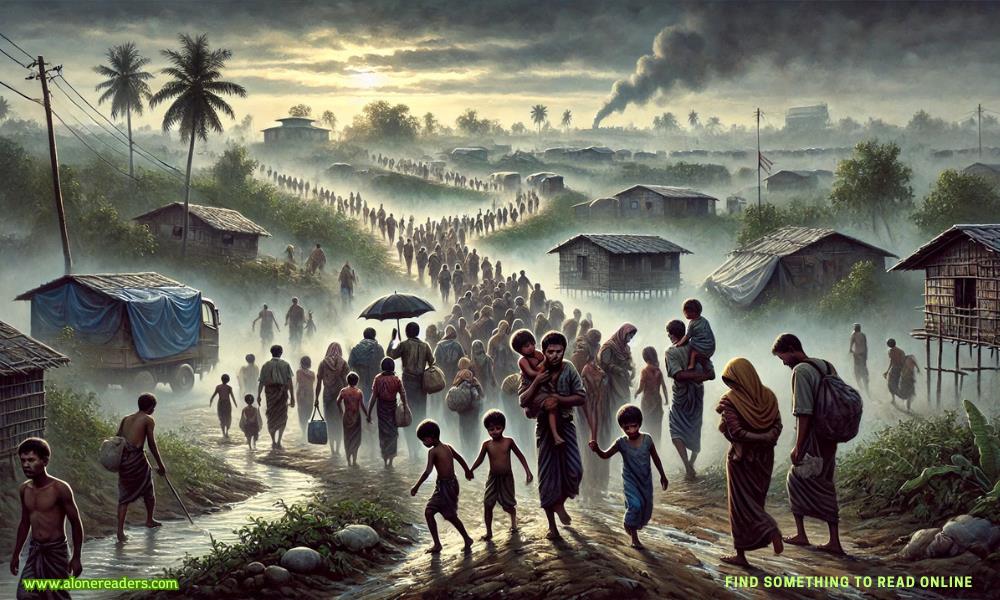
The Rohingya crisis, which began in Myanmar in 2017, has become one of the most pressing humanitarian issues of the 21st century. The crisis unfolded when Myanmar's military launched a brutal crackdown against the Rohingya Muslim minority in Rakhine State, a region in the country's northwest. This campaign, marked by widespread violence, arson, and allegations of systematic rape and killings, resulted in the displacement of hundreds of thousands of people. The Rohingya, an ethnic minority who had long faced discrimination and statelessness in Myanmar, were forced to flee their homes and seek refuge in neighboring Bangladesh and beyond.
The Rohingya have faced persecution in Myanmar for decades, primarily due to their ethnic and religious identity. The government of Myanmar does not recognize them as one of the country's official ethnic groups and has denied them citizenship under the 1982 Citizenship Law. This has left the Rohingya stateless, depriving them of basic rights, such as access to education, healthcare, and employment. Over the years, this systemic marginalization has created a vulnerable population, susceptible to acts of violence and exploitation.
In August 2017, the situation reached a critical point when the Arakan Rohingya Salvation Army (ARSA), a Rohingya militant group, attacked several Myanmar police posts, leading to a violent military response. The military's so-called "clearance operations" were condemned globally for their disproportionate and indiscriminate nature. Entire villages were burned to the ground, forcing survivors to flee. By the end of 2017, more than 700,000 Rohingya had crossed the border into Bangladesh, joining those who had fled previous waves of violence.
The Rohingya refugees primarily settled in Cox's Bazar, Bangladesh, which now hosts one of the largest refugee camps in the world. Living conditions in these camps are dire, with overcrowding, inadequate sanitation, and limited access to clean water, food, and medical services. Despite the efforts of international humanitarian organizations, the scale of the crisis has overwhelmed resources, leaving many basic needs unmet. The camps also face additional challenges, such as the risk of disease outbreaks and the threat of monsoon rains causing landslides and flooding.
International response to the Rohingya crisis has been mixed. While humanitarian aid has poured in to support the refugees, the lack of a cohesive political solution has left the crisis unresolved. The United Nations has described the military's actions in Myanmar as a "textbook example of ethnic cleansing," and several human rights organizations have called for accountability. However, efforts to bring Myanmar’s military leaders to justice at the International Criminal Court have faced significant legal and political hurdles.
Bangladesh, despite its limited resources, has shown remarkable generosity in hosting the Rohingya refugees. However, the strain on the country’s infrastructure and resources has led to increasing calls for a long-term solution. Bangladesh and Myanmar have engaged in discussions about repatriation, but the lack of safety and guarantees of citizenship in Myanmar has made voluntary returns nearly impossible. The Rohingya themselves have expressed fear of returning to a country where they face continued persecution and violence.
The crisis has also highlighted the broader issues of global responsibility-sharing for refugees. While Bangladesh has shouldered the bulk of the burden, many developed nations have been criticized for their reluctance to accept Rohingya refugees or provide adequate funding for humanitarian efforts. The situation underscores the urgent need for international cooperation and solidarity in addressing displacement crises.
As the years pass, the Rohingya crisis remains a stark reminder of the consequences of ethnic discrimination and statelessness. The Rohingya people continue to live in limbo, caught between the atrocities they fled in Myanmar and the challenges of life as refugees. For many, the hope of returning to a safe and dignified existence in their homeland feels increasingly out of reach.
The plight of the Rohingya is not just a humanitarian crisis; it is a test of the world's commitment to upholding justice and human dignity. Addressing the crisis requires not only immediate relief but also long-term solutions that tackle the underlying causes of displacement. Until then, the Rohingya will continue to endure a life of hardship and uncertainty, longing for the safety and recognition they have been denied for generations.